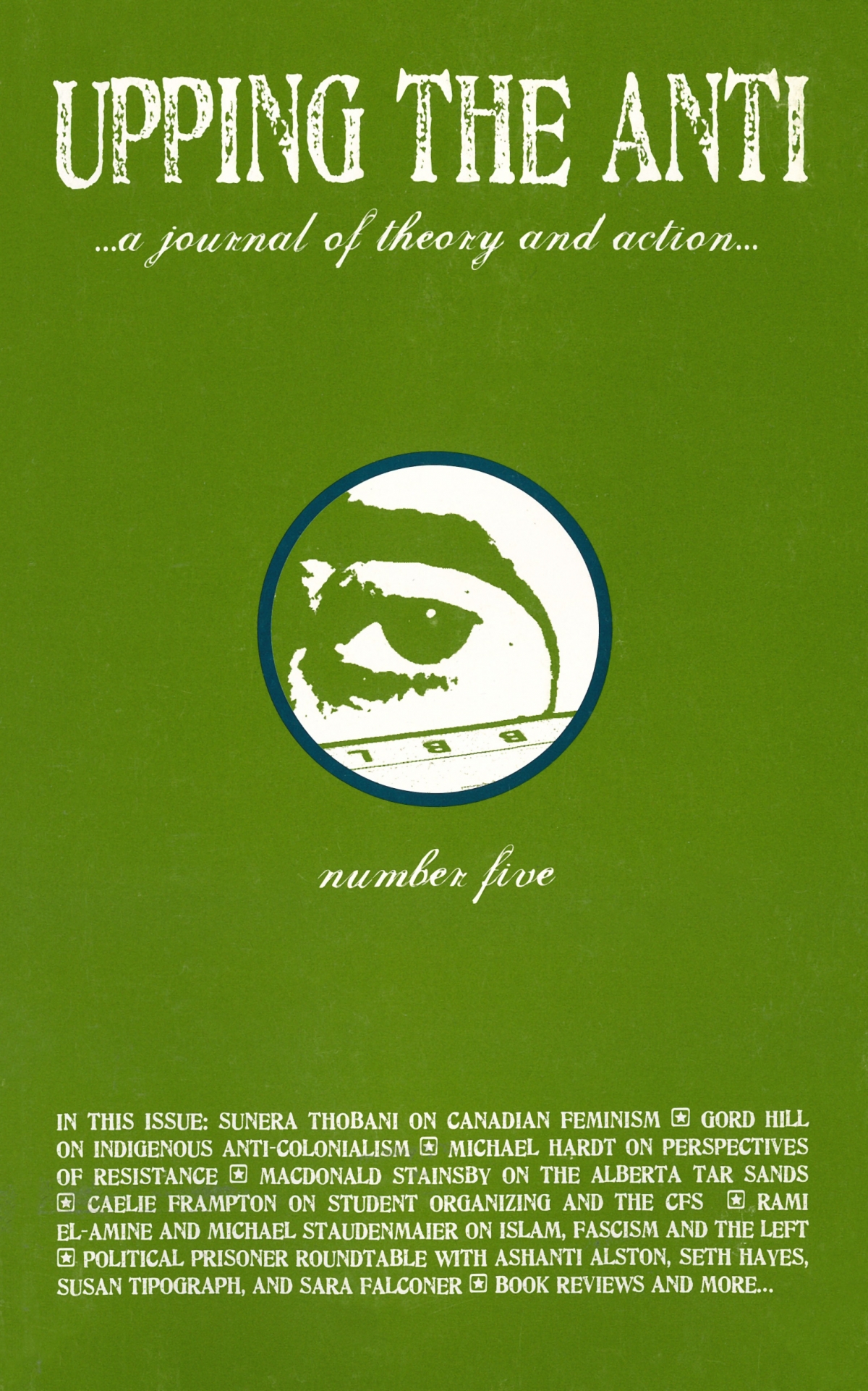Responsibility and Direction
Dear UT A, Thanks for having sufficient interest in my book Taking Responsibility Taking Direction: White Anti-Racism in Canadato review it. My whole point in writing the book was to contribute to the process of moving our thinking and work on the topic forward; any thoughtful critique to that end is welcome.
If I understand Scott Clarke’s closing words in his review in the last issue of UTA – and I’m not sure that I do, since you can take what he says to mean a couple of different things – I completely agree that I fell short of the dialectical sophistication I was seeking to achieve. That stuff’s hard to really get at, isn’t it? To really get the contradictory, paradoxical relationship between two social phenomena that seem to be opposites but are really quite intertwined and so affected by one another, in terms of individual human and collective social functioning, is a serious challenge. For this reason, I really appreciate Tom Keefer’s article, which appeared in the same issue as Clarke’s review, for its important contribution to shedding more light on the dialectical challenge of white anti-racism.
I just wish Clarke had done two things with the review: focused on reviewing the book I wrote rather than on the one he wished had been written, and stuck to reviewing what I said, not what he often read into my analysis. Clarke’s review suggests that he wanted a hefty, how-to manual for community-based white anti-racist activists. Maybe someone will write one soon. It’s not, however, what I set out to do, nor is it something I suggested my book would do.
On the second point, it’s not uncommon for people on the left to act as though we already know what people are thinking before we’ve fully heard, read, or taken in what they’ve said. Clarke’s review sure is a lesson for me to stop doing this to other folks. It was just a little hard to read Clarke’s comments as he “read my mind,” especially when he kept getting it wrong. For instance, never did I indicate that I think people of colour spend too much time doing this or that. Instead, I critiqued white folks who fall in love with any old thing a person of colour says or does – that’s paternalistic.
Further, after admitting to “simplifying my argument” about the relationship between white-majority organizations and people of colour, Clarke seems to suggest that I put the onus on people of colour to join “us.” But if he had really read what I wrote and taken note of who I’ve been working with, it would be impossible to believe that that’s what I meant. Here’s an example: a lot of the white-majority organizations to which I refer are unions. And damn right they should be making efforts on many fronts: to unionize more people of colour, to organize and win language to ensure that their employers hire more people of colour, to hire more people of colour as union staff, and to put some anti-racist and democratic practices in place to ensure that elected reps are actually representing the membership. All of which can help to ensure real, equitable access to higher-waged work and political power for women of colour. And no, that’s not necessarily revolutionary. But that’s okay because it’s just a little bit of social change that seems hard for white supremacy to spare.
In solidarity,
Sheila Wilmot, Toronto

